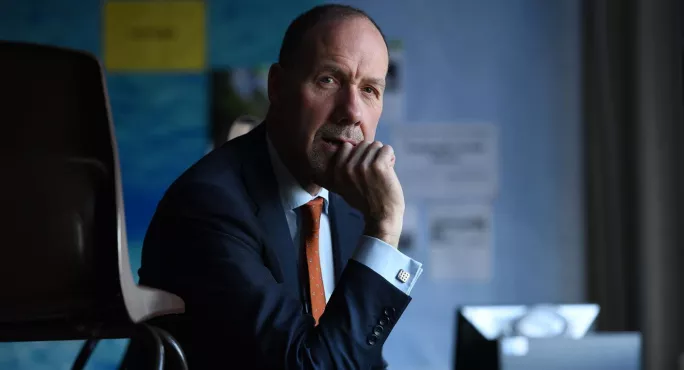Omicron: What a Plan B for education should have looked like

The headline of a Department for Education blog published on Thursday read: “What does Covid Plan B mean for schools, colleges, universities and early years?”
The answer, as any reader will have quickly discovered, was: not a lot, really.
You may think this is strange given the threat posed by the Omicron variant of Covid-19 that could easily result in massive additional disruption to all education settings.
But the DfE blog was pretty emphatic on all counts.
Will schools be closing early? No.
Will pupils and students have to wear face coverings or masks? The guidance hasn’t changed.
Can nativities and Christmas events still go ahead? Yes.
What are the rules on testing? Largely the same as they were before.
Advice from MPs - not teachers
There was even a video of education secretary Nadhim Zahawi that actually seemed to be a defence of why the government wasn’t recommending the reintroduction of face masks in secondary and college classrooms - even though this is now the norm in schools in Scotland, Wales and Northern Ireland.
“Additional mask-wearing can - and I have had reports from a number of MPs - impede or hinder the communication in a classroom,” he said.
Note that this advice apparently comes from MPs - rather than from people who actually work in schools.
It is, of course, correct that face masks make communication more difficult. But that isn’t really the question.
The point is whether face masks in classrooms are now necessary because of the additional risks posed by Omicron. In other words, whether the balance has shifted from a concern over communication to a greater concern over the virus.
In reality, there’s likely to be quite a few classrooms with pupils wearing face masks as a result of local decisions in any case. And perhaps that is the best way of doing things, with that call being made on the basis of context and circumstances.
But it would be interesting to hear from the government about the scientific basis for its decision not to issue a universal recommendation at this point in time. Then at least we will all know where we are.
Because it won’t have escaped anybody’s attention that in all this talk of a Plan B there doesn’t appear to be any Plan B for education.
This is despite the repeated refrain from the government about keeping schools and colleges open being its top priority. This doesn’t happen just because of grand words. It needs to be backed up by action.
What we have dispiritingly seen throughout the course of the pandemic is schools left to struggle with a rollercoaster of spiralling pupil and staff absence as Covid wreaks havoc - and this is outside of actual periods of lockdown.
The government can claim that schools are open but, in reality, large numbers of pupils are generally at home self-isolating.
A plan of action
If the government wants a plan to support schools and colleges in keeping pupils in the classroom it really isn’t that difficult, but it does take investment and political will.
For a start, it could make sure that when it asks secondary schools to carry out on-site asymptomatic testing that it drafts in public health teams to organise and staff testing stations rather than expecting this of schools.
It could launch a public information campaign to promote the importance of eligible pupils carrying out twice-weekly lateral flow tests at home.
It could ensure that the second round of Covid vaccinations for 12- to 15-year-olds is better resourced than the first round that was beset with predictable and frustrating delays.
And it could provide all schools and colleges that need air cleaning units with these devices rather than telling most to purchase them in an “online marketplace”.
It could make the workforce fund for supply cover much more supportive by ratcheting down the eligibility criteria and allowing claims beyond the confined time window that currently applies.
And it could encourage Ofsted to show more empathy to schools and colleges by agreeing to defer routine inspections upon request - as we have been calling for.
Giving school support
Of course, even if all this is done, it won’t be enough to negate the risk of infection or stop Omicron in its tracks. But it would help tackle those risks and make schools and colleges feel that the government has got their backs, rather than constantly leaving them in the lurch.
And all this is without even mentioning face masks.
This crisis has gone on for a long time now. It is pretty incredible that we are so far down that road and the education sector still lacks the supportive infrastructure mapped out above.
Let’s hope that Omicron doesn’t cause a fresh wave of chaos and that a Plan B for education doesn’t turn out to be a last-minute series of panic measures.
Which is, of course, exactly what happened last Christmas.
Geoff Barton is general secretary of the Association of School and College Leaders
You need a Tes subscription to read this article
Subscribe now to read this article and get other subscriber-only content:
- Unlimited access to all Tes magazine content
- Exclusive subscriber-only stories
- Award-winning email newsletters
Already a subscriber? Log in
You need a subscription to read this article
Subscribe now to read this article and get other subscriber-only content, including:
- Unlimited access to all Tes magazine content
- Exclusive subscriber-only stories
- Award-winning email newsletters



